Get Link Info activity
An activity that gets information related to the specified link.

Configure the Get Link Info activity
To configure the Get Link Info activity, do the procedure in this topic.
Prerequisites
- AgilePoint NX OnDemand (public cloud), or AgilePoint NX Private Cloud or AgilePoint NX OnPremises v7.0 or higher.
Good to Know
- To send an email notification, click
Advanced
 >
Email Notifications
>
Email Notifications  .
. For more information, refer to Email Notifications screen (Process Activities).
- In most text fields, you can use process data variables as an alternative to literal data values.
- This section shows the configuration settings on the configuration screens for this activity. Other configuration settings apply to system activities. For more information, refer to:
- Some information about third-party integrations is outside the scope of the AgilePoint NX Product Documentation. It is the responsibility of the vendors who create and maintain these technologies to provide this information. This includes specific business use cases and examples; explanations for third-party concepts; details about the data models and input and output data formats for third-party technologies; and various types of IDs, URL patterns, connection string formats, or other technical information that is specific to the third-party technologies. For more information, refer to Where Can I Find Information and Examples for Third-Party Integrations?
How to Start
- Open Process Builder.
For information about how to open this screen, refer to Process Builder.
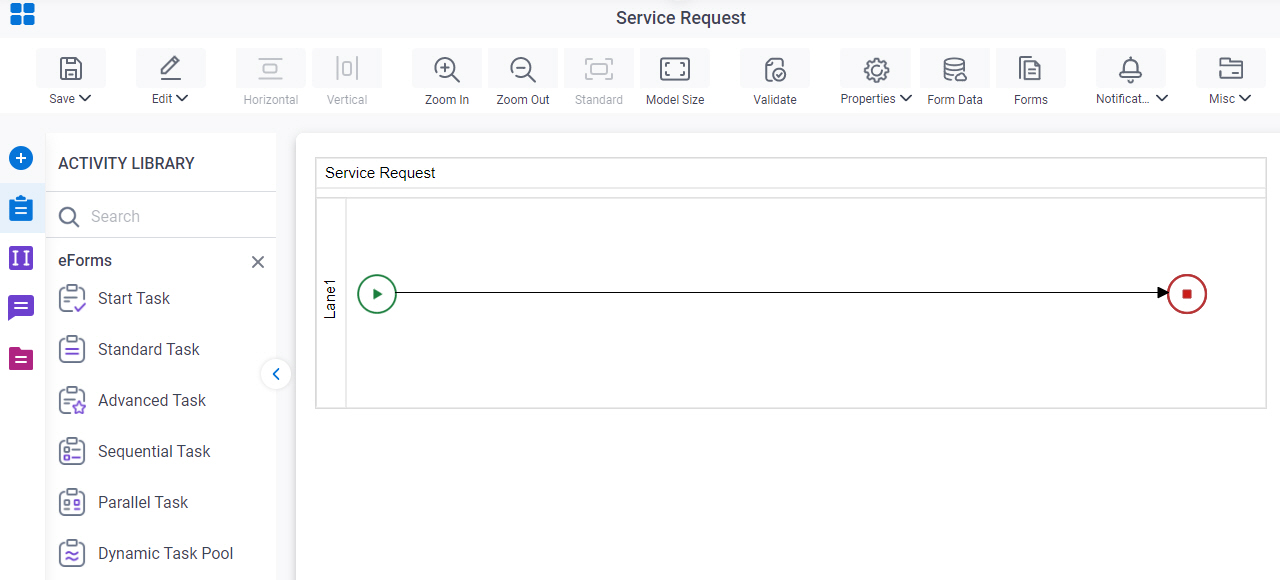
- In Process Builder, in the Activity Library,
open the Bitly tab.
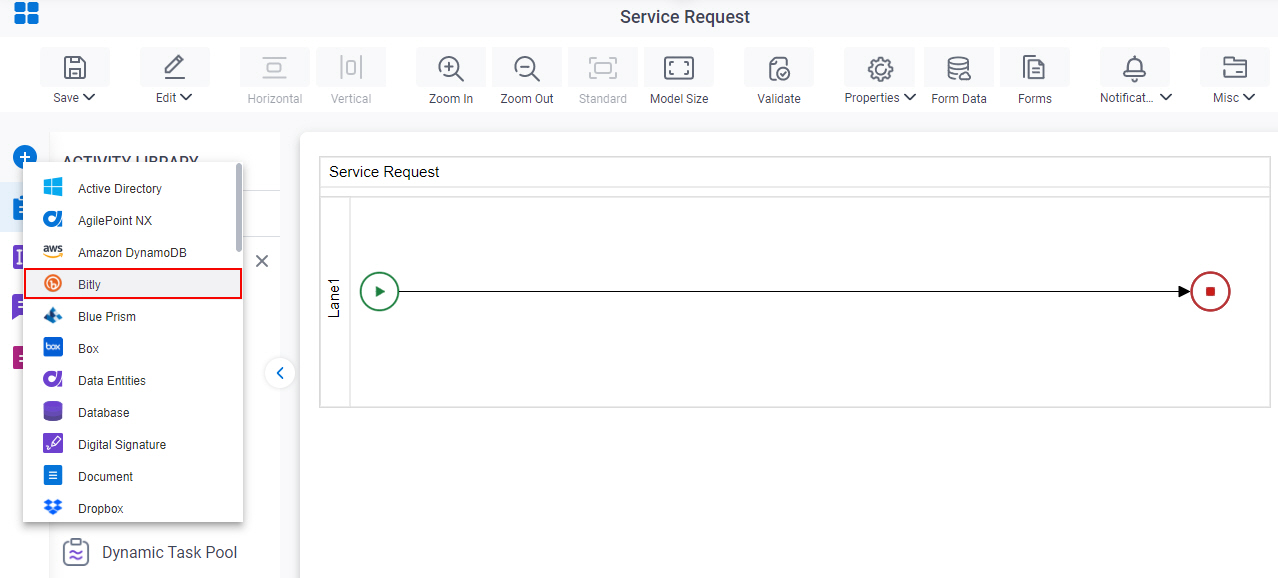
- On the Bitly tab,
drag the Get Link Info
activity onto your process.
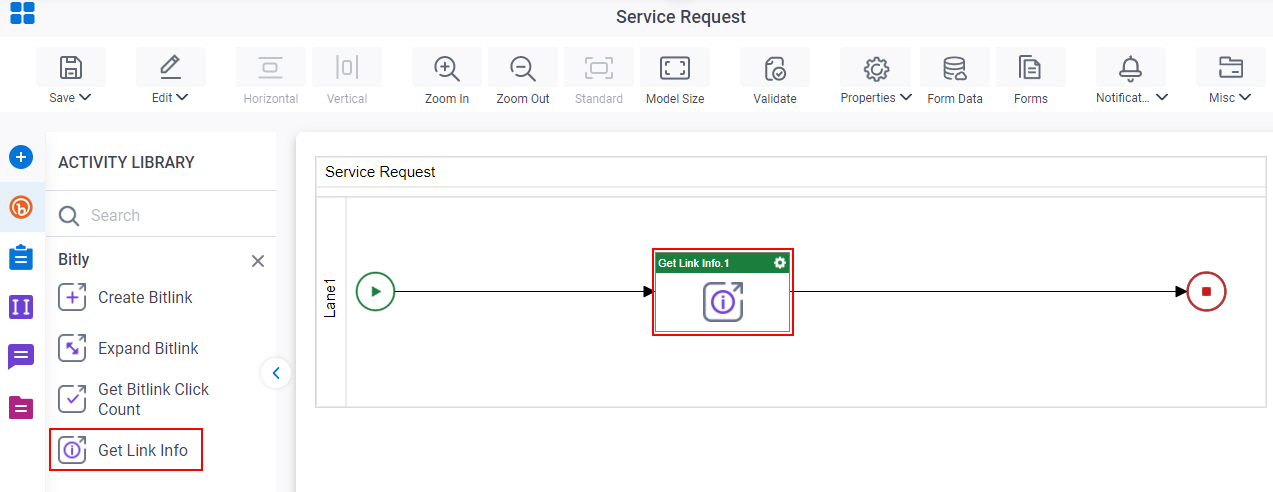
General Configuration
Specifies the basic settings for the Get Link Info activity.
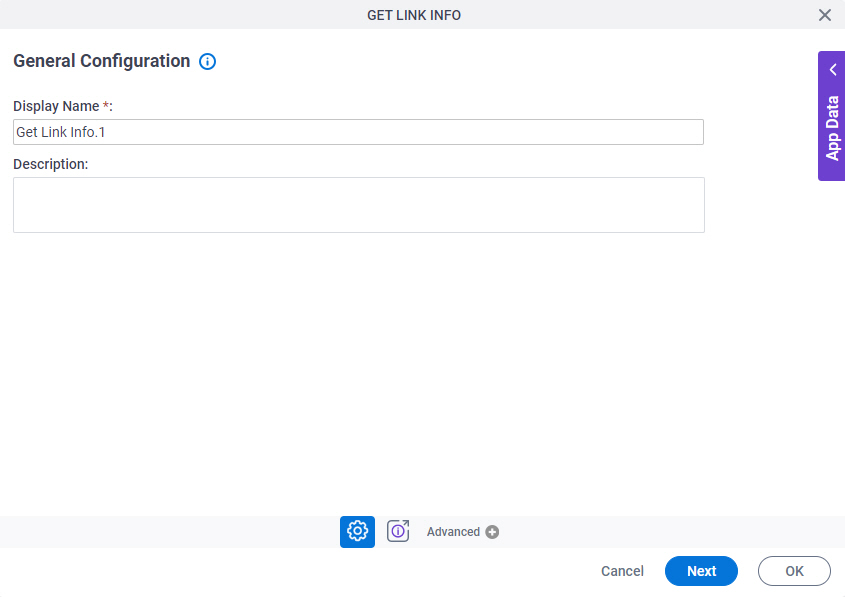
Good to Know
- Documentation for this screen is provided for completeness. The fields are mostly self-explanatory.
Fields
| Field Name | Definition |
|---|---|
|
Display Name |
|
|
Description |
|
Get Link Information Configuration
Specifies the link whose information to get.
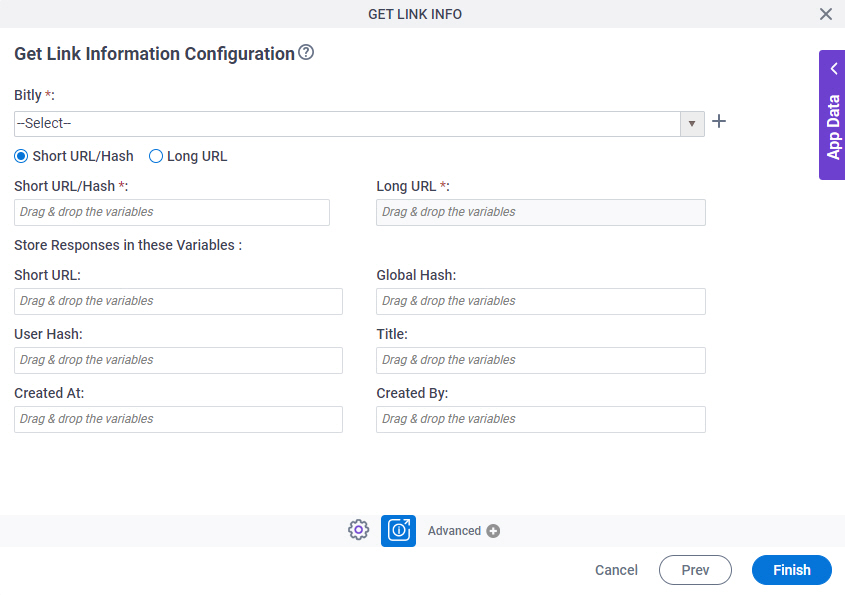
Fields
| Field Name | Definition |
|---|---|
|
Bitly |
|
|
Create |
|
|
Short URL/Hash |
|
|
Long URL |
|
|
Store Responses in these Variables - Short URL |
|
|
Store Responses in these Variables - Global Hash |
|
|
Store Responses in these Variables - User Hash |
|
|
Store Responses in these Variables - Title |
|
|
Store Responses in these Variables - Created at |
|
|
Store Responses in these Variables - Created By |
|



